 CAS-ANSO Scholarship (Degree Program)
CAS-ANSO Scholarship (Degree Program) 
 2025 Call for Applications
2025 Call for Applications 
Part I: Introduction
The Alliance of National and International Science Organizations for the Belt and Road Regions (ANSO) is a non-profit, non-governmental international organization founded in 2018. Founding members include the Chinese Academy of Sciences (CAS) and 36 other scientific institutions, universities, and international organizations worldwide. ANSO aims to improve regional and global capacity in science and technology, human livelihoods and wellbeing, and to promote broader S&T cooperation and communication.
CAS-ANSO Scholarship (previously known as ANSO Scholarship for Young Talents) was formally launched in 2019 with the goal of training and cultivating young scientists from all over the world. CAS-ANSO Scholarship has two categories: degree program and non-degree program. The degree program supports 100 to 200 Master’s students and 300 PhD students every year to pursue postgraduate education at the University of Science and Technology of China (USTC), the University of Chinese Academy of Sciences (UCAS) and institutes of Chinese Academy of Sciences (CAS) around China.
A sub-category of CAS-ANSO Scholarship (Degree Program): the ANSO-CAS-TWAS/UNESCO PhD Scholarship was officially launched in year 2022. Echoing the priority of TWAS/UNESCO, special (not exclusive) consideration will be given to two target groups: Least Development Countries (LDCs) and women. Up to 40 PhD students from developing countries will be selected by TWAS/UNESCO into this category every year.
CAS, the leading founding member of ANSO, is the major sponsor of CAS-ANSO Scholarship. TWAS and UNESCO, both founding members of ANSO, provide part of the funding for ANSO-CAS-TWAS/UNESCO PhD Scholarship awardees. ANSO welcomes all members and parties who are interested in creating a more diversified scholarship program together.
Part II: Coverage

[NOTE]
1.For ANSO-CAS-TWAS/UNESCO PhD Scholarship awardees, the above item 1 to item 4 will be sponsored by CAS; item 5 and item 6 will be sponsored by TWAS/UNESCO. For other CAS-ANSO Scholarship awardees, all the items above will be covered by CAS.
2.The allowance/reimbursement standards and procedure for item 5 and item 6 should comply with the rules of the sponsor.
3.Any scholarship awardee on site in China, the host country, at the time of application will NOT be eligible for any travel subsidy.
All awardees are required to finish centralized training in Chinese language, Chinese culture and all required credits as well as practical research and completion of degree thesis at colleges and schools of USTC/UCAS or CAS institutes.
Any awardee who fails annual assessments will face the consequences including:
•Termination of his/her scholarship;
•Discontinuity of his/her study;
•Being provided with a certificate of attendance for the period of study undertaken in China but not a formal degree.
All the awardees are required to abide by Chinese laws and USTC/UCAS regulations and rules.
Part III: Eligibility
·Eligible applicants should NOT hold Chinese citizenship;
·Eligible applicants should be proficient in English or Chinese;
·For Master’s program applicants: you should be born after 1st January 1995 (inclusive);
For PhD program applicants: you should be born after 1st January 1990 (inclusive);
·Eligible applicants should meet the admission criteria for international students of USTC/UCAS;
·Eligible applicants should NOT take up other assignments during the period of his/her scholarship.
·If you are currently pursuing a master’s degree at any university/institution in China, you are NOT eligible for the master’s program of this scholarship. If you are currently pursuing a doctoral degree at any university/institution in China, you are NOT eligible for the PhD program of this scholarship. Otherwise, you will be disqualified from admission and the situation will be reported to your current university/institution.
[NOTE]
·You are NOT allowed to apply for the CAS-ANSO Scholarship in both USTC and UCAS simultaneously, otherwise you will be disqualified from admission.
Part IV: Application Procedure
The 2025 CAS-ANSO Scholarship is open for application on 20th October 2024 (The exact dates might be slightly different for USTC and UCAS, please check their websites for details).
Deadline for Applicants and Referees: 15 February 2025 (Beijing Time)
1. Application Materials
For USTC applicants, please refer to Application Guideline for Graduate Applicants to USTC (
here)
For UCAS applicants, please refer to the Call for 2025 Doctoral Programs for International Students and the Call for 2025 Master's Programs for International Students (
here)
2. Application Portal
File and submit your application in the USTC/UCAS admission system as requested before the deadline.
When applying:
•Firstly, choose “the CAS-ANSO Scholarship” in your application.
•Secondly, if you want to be considered a potential candidate for the ANSO-CAS-TWAS/UNESCO PhD Scholarship, check the box as instructed in the application system.
To USTC admission system portal: here To UCAS admission system portal: here
Part V: Contact
Application Management:
2) UCAS
Scholarship Management:
3) ANSO and CAS
Ms. Zhongxiu WANG
ANSO Secretariat
No. 16 Lincui Road, Chaoyang District, Beijing 100101, P.R. China
Tel : +86 10 8409 0801
Email : scholarship@anso.org.cn
4) TWAS/UNESCO
Ms. Cristina Ballaben SIMOES
PhD and postdoctoral fellowships
ICTP Enrico Fermi Building, Room T6
Phone: +39 040 2240 314
E-mail: fellowships@twas.org
Part VI: Information of Relevant Parties
ANSO is a non-profit and non-governmental international scientific organization founded in 2018 by the Chinese Academy of Sciences (CAS) and 36 other international science and education institutions from around the world. By the end of 2023, the number of ANSO members has increased to 78. ANSO is committed to promoting shared sustainable development and the advancement of the UN Sustainable Development Goals (SDGs) through catalyzing and implementing concrete international cooperative initiatives in Science, Technology, Innovation and Capacity Building (STIC). It is envisaged that ANSO will focus on the most urgent regional and global challenges through STIC. This focus includes supporting scientific capacity building and the needs, particularly of the Global South, through partnerships and cooperation with the member countries and institutions. ANSO will also promote collaborations across the scientific and technological communities of the world to ensure that the benefits of the BRI are widely shared. There will be open access to scientific facilities and information among participants in ANSO. The grooming and empowerment of young scientists will be a particular focus of ANSO. The CAS-ANSO Scholarship is one of the main approaches to achieving this goal.
CAS is a national academic institution in China consisting of a comprehensive research and development network, a merit-based learned society and a system of higher education, focusing on natural sciences, technological sciences and high-tech innovation in China. It has 12 branches, 2 universities and more than 100 institutes with around 60,000 staff and 50,000 postgraduate students. It hosts 89 national key labs, 172 CAS key labs, 30 national engineering research centers and about 1,000 field stations throughout China. As a merit-based society, it has five academic divisions. CAS is dedicated to addressing fundamental, strategic and farsighted challenges related to the overall and long-term development of China. CAS is the leading founding member of ANSO.
UNESCO-TWAS: The World Academy of Sciences for the advancement of science in developing countries (UNESCO-TWAS) works to advance sustainable prosperity in the global South by supporting and promoting scientific excellence in various fashions: funding research projects, providing education and training, fostering science policy, and contributing to increasing the relevance of science diplomacy. The Academy was founded in 1983 by a distinguished group of scientists from the developing world under the leadership of Pakistani physicist and Nobel Prize winner Abdus Salam, and is based in Trieste, Italy. Today, TWAS counts 1,296 elected Fellows—some of the world's most accomplished scientists—representing more than 100 countries; 11 of them are Nobel laureates. TWAS receives core funding from the Government of Italy, and essential programmatic funding from the Swedish International Development Cooperation Agency (Sida). The United Nations Educational, Scientific and Cultural Organization (UNESCO) administers TWAS funds and personnel. Both TWAS and UNESCO are founding members of ANSO.
USTC is the first university established by the Chinese Academy of Sciences in 1958 and took the lead in launching China’s first Graduate School in 1978. As a comprehensive university, USTC is renowned for its advanced science and technology disciplines, new medicine and well-tailored programs in management and humanities. Regarded as "the Cradle of Scientific Elites," USTC is a vital center for innovation in China, equipped with advanced laboratories and large scale scientific facilities. USTC provides both undergraduate and postgraduate programs across its 32 schools. It also houses Suzhou Institute, Shanghai Institute, Beijing Institute, Institute of Advanced Technology, and the First Affiliated Hospital of USTC. According to the Times Higher Education World University Rankings 2025, USTC is ranked 53rd globally. In the Nature Index 2024, it ranks 3rd globally among the leading research institutions. USTC boasts five disciplines in the top 1‰ of the ESI International Ranking 2022 (Physics, Material Science, Chemistry, Engineering, and Computer Science) and 13 disciplines in the world's top 50 of the ARWU Subject Rankings 2022, including Nano Science & Technology, Energy Science & Technology, and more. USTC is responsible for the enrollment and management of the master’s and doctoral candidates of the CAS-ANSO Scholarship Program admitted by USTC.
UCAS, University of Chinese Academy of Sciences (UCAS) is an innovative university that integrates scientific research and education, focuses mainly on graduate education, and features outstanding undergraduate education. Its predecessor was the Graduate University of Chinese Academy of Sciences established in 1978. Being the largest graduate education institution in China, UCAS has over 50,000 ongoing students, and more than half of them are doctoral students. With strong support from CAS institutes all over China, UCAS espouses the philosophy of “The Fusion of Scientific Research and Teaching” as its basic system of education. UCAS is authorized to confer all masters’ and doctorate degrees in the scientific disciplines, as well as 90% of all degrees in the engineering disciplines. UCAS ranked 3rd globally among the leading research institutions in the list released in September 2023 by Nature Index. According to the Global University Ranking by Essential Science Indicator (ESI) in May 2024, UCAS ranked No. 1 in China and No. 17 worldwide. As a member of the Association of Pacific Rim Universities (APRU), UCAS has established close ties with over 100 world-renowned universities. Based on CAS overseas institutions, UCAS is building overseas joint centers for education and research to improve the capacity for technology innovation of B&R countries. UCAS is responsible for the enrollment and management of the master’s and doctoral candidates of the CAS-ANSO Scholarship Program admitted by UCAS.


 CAS-ANSO Scholarship (Degree Program)
CAS-ANSO Scholarship (Degree Program) 
 2025 Call for Applications
2025 Call for Applications 





 CAS-ANSO Scholarship (Degree Program)
CAS-ANSO Scholarship (Degree Program) 
 2025 Call for Applications
2025 Call for Applications 



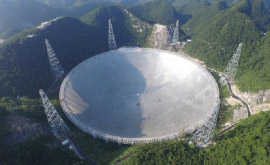
 Joyce YUN
Joyce YUN 010-64807790
010-64807790 xsyun@nao.cas.cn
xsyun@nao.cas.cn
 http://www.lamost.org/public/?locale=en
http://www.lamost.org/public/?locale=en Joyce YUN
Joyce YUN 010-64807790
010-64807790 xsyun@nao.cas.cn
xsyun@nao.cas.cn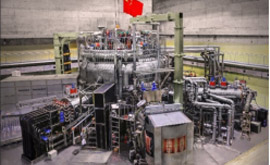
 Lin REN
Lin REN +86-551-65591064
+86-551-65591064 renlin@hfcas.ac.cn
renlin@hfcas.ac.cn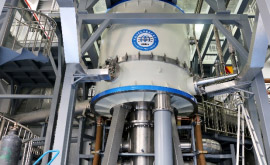
 Lin REN
Lin REN +86-551-65591064
+86-551-65591064 renlin@hfcas.ac.cn
renlin@hfcas.ac.cn
 http://english.ihep.cas.cn/csns/
http://english.ihep.cas.cn/csns/ Yin LI
Yin LI 010-88235014
010-88235014 liyin@ihep.ac.cn
liyin@ihep.ac.cn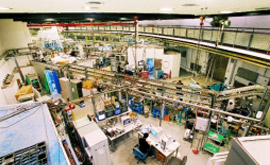
 http://english.bsrf.ihep.cas.cn/
http://english.bsrf.ihep.cas.cn/ Yin LI
Yin LI 010-88235014
010-88235014 liyin@ihep.ac.cn
liyin@ihep.ac.cn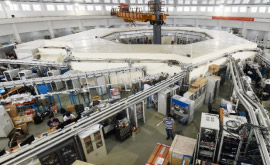
 Erica XIE
Erica XIE +86-551-63602034
+86-551-63602034 ericaxie@ustc.edu.cn
ericaxie@ustc.edu.cn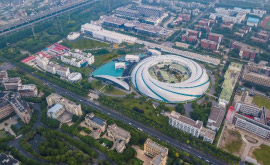
 Zhengchi HOU
Zhengchi HOU 021-33933062
021-33933062 houzc@sari.ac.cn
houzc@sari.ac.cn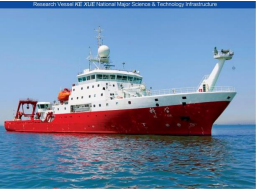
 http://dept.qdio.cas.cn/lrio/xw/en/201606/t20160607_338171.html
http://dept.qdio.cas.cn/lrio/xw/en/201606/t20160607_338171.html Fengfan YANG
Fengfan YANG +86-532-82898623
+86-532-82898623 fengfanyang@qdio.ac.cn
fengfanyang@qdio.ac.cn